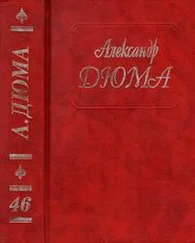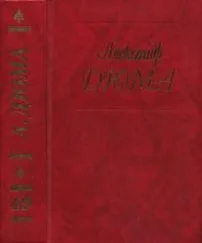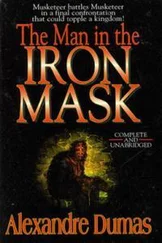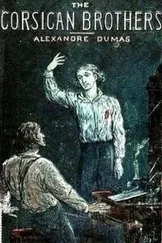Александр Дюма - The Conspirators
Здесь есть возможность читать онлайн «Александр Дюма - The Conspirators» весь текст электронной книги совершенно бесплатно (целиком полную версию без сокращений). В некоторых случаях можно слушать аудио, скачать через торрент в формате fb2 и присутствует краткое содержание. Год выпуска: 2014, Издательство: epubBooks Classics, Жанр: Историческая проза, на английском языке. Описание произведения, (предисловие) а так же отзывы посетителей доступны на портале библиотеки ЛибКат.
- Название:The Conspirators
- Автор:
- Издательство:epubBooks Classics
- Жанр:
- Год:2014
- ISBN:нет данных
- Рейтинг книги:3 / 5. Голосов: 1
-
Избранное:Добавить в избранное
- Отзывы:
-
Ваша оценка:
- 60
- 1
- 2
- 3
- 4
- 5
The Conspirators: краткое содержание, описание и аннотация
Предлагаем к чтению аннотацию, описание, краткое содержание или предисловие (зависит от того, что написал сам автор книги «The Conspirators»). Если вы не нашли необходимую информацию о книге — напишите в комментариях, мы постараемся отыскать её.
The Conspirators — читать онлайн бесплатно полную книгу (весь текст) целиком
Ниже представлен текст книги, разбитый по страницам. Система сохранения места последней прочитанной страницы, позволяет с удобством читать онлайн бесплатно книгу «The Conspirators», без необходимости каждый раз заново искать на чём Вы остановились. Поставьте закладку, и сможете в любой момент перейти на страницу, на которой закончили чтение.
Интервал:
Закладка:
Chapter XXXVII
The Savior of France
While these terrible events were going forward in the attic of Madame Denis's house, Bathilde, uneasy at seeing her neighbor's window so long shut, had opened hers, and the first thing she saw, was the dappled gray horse attached to the shutter; but as she had not seen the captain go in, she thought that the steed was for Raoul, and that reflection immediately recalled both her former and present fears.
Bathilde consequently remained at the window, looking on all sides, and trying to read in the physiognomy of every passer–by whether that individual was an actor in the mysterious drama which was preparing, and in which she instinctively understood that Raoul was to play the chief part. She remained, then, with a beating heart, her neck stretched out, and her eyes wandering hither and thither, when all at once her unquiet glances concentrated on a point. The young girl gave a cry of joy, for she saw Buvat coming round the corner from the Rue Montmartre. Indeed, it was the worthy caligraphist in person, who, looking behind him from time to time—as if he feared pursuit—advanced with his cane horizontal, and at as swift a run as his little legs permitted.
While he enters, and embraces his ward, let us look back and relate the causes of that absence, which, doubtless, caused as much uneasiness to our readers as to Nanette and Bathilde.
It will be remembered how Buvat—driven by fear of torture to the revelation of the conspiracy—had been forced by Dubois to make every day, at his house, a copy of the documents which the pretended Prince de Listhnay had given him. It was thus that the minister of the regent had successively learned all the projects of the conspirators, which he had defeated by the arrest of Marshal Villeroy, and by the convocation of parliament.
Buvat had been at work as usual, but about four o'clock, as he rose, and took his hat in one hand and his cane in the other, Dubois came in and took him into a little room above that where he had been working, and, having arrived there, asked him what he thought of the apartment. Flattered by this deference of the prime minister's to his judgment, Buvat hastened to reply that he thought it very agreeable.
"So much the better," answered Dubois, "and I am very glad that it is to your taste, for it is yours."
"Mine!" cried Buvat, astonished.
"Certainly; is it astonishing that I should wish to have under my hand, or rather, under my eyes, a personage as important as yourself?"
"But," asked Buvat, "am I then going to live in the Palais Royal?"
"For some days, at least," answered Dubois.
"Monseigneur, let me at all events inform Bathilde."
"That is just the thing. Bathilde must not be informed."
THE BODY OF THE CAPTAIN LAY STRETCHED ON THE FLOOR, SWIMMING IN A SEA OF BLOOD.
"But you will permit that the first time I go out—"
"As long as you remain here you will not go out."
"But," cried Buvat, with terror, "but I am then a prisoner?"
"A State prisoner, as you have said, my dear Buvat: but calm yourself; your captivity will not be long, and while it lasts we will take of you all the care which is the due of the savior of France, for you have saved France, Monsieur Buvat."
"I have saved France, and here I am a prisoner under bolts and bars!"
"And where on earth do you see bolts and bars, my dear Buvat?" said Dubois, laughing; "the door shuts with a latch, and has not even a lock: as to the window, yours looks on the gardens of the Palais Royal, and has not even a lattice to intercept the view, a superb view—you are lodged here like the regent himself."
"Oh, my little room! Oh, my terrace!" cried Buvat, letting himself sink exhausted on a seat.
Dubois, who had no other consolation to bestow upon Buvat, went out, and placed a sentinel at the door. The explanation of this step is easy. Dubois feared that, seeing the arrest of Villeroy, they would suspect from whence the information came, and would question Buvat, and that he would confess all. This confession would, doubtless, have arrested the conspirators in the midst of their schemes, which, on the contrary, Dubois, informed beforehand of all their plans, wished to see carried to a point, so that in crushing one monster rebellion he might put an end to all lesser ones.
Toward eight o'clock, as daylight began to fade, Buvat heard a great noise at his door, and a sort of metallic clashing, which did not tend to reassure him. He had heard plenty of lamentable stories of State prisoners who had been assassinated in their prisons, and he rose trembling and ran to the window. The court and gardens of the Palais Royal were full of people, the galleries began to be lighted up, the whole scene was full of gayety and light. He heaved a profound sigh, thinking perhaps that he might be bidding a last adieu to that life and animation. At that instant the door was opened; Buvat turned round shuddering, and saw two tall footmen in red livery bringing in a well–supplied table. The metallic noise which had so much disturbed him had been the clattering of the silver plates and dishes.
Buvat's first impression was one of thankfulness to Heaven, that so imminent a danger as that which he had feared had changed into such a satisfactory event. But immediately the idea struck him that the deadly intentions held toward him were still the same, and that only the mode of their execution were changed—instead of being assassinated, like Jeansans–Peur, or the Duc de Guise, he was going to be poisoned, like the Dauphin, or the Duc de Burgundy. He threw a rapid glance on the two footmen, and thought he remarked something somber which denoted the agents of a secret vengeance. From this instant his determination was taken, and, in spite of the scent of the dishes, which appeared to him an additional proof, he refused all sustenance, saying majestically that he was neither hungry nor thirsty.
The footmen looked at each other knowingly. They were two sharp fellows, and had understood Buvat's character at a glance, and not understanding a man not being hungry when before a pheasant stuffed with truffles, or not thirsty before a bottle of Chambertin, had penetrated the prisoner's fears pretty quickly. They exchanged a few words in a low tone, and the boldest of the two, seeing that there was a means of drawing some profit from the circumstances, advanced toward Buvat, who recoiled before him as far as the room would allow.
"Monsieur," said he, in a reassuring tone, "we understand your fears, and, as we are honest servants, we will show you that we are incapable of lending ourselves to the dealings which you suspect; consequently, during the whole time that you remain here, my comrade and I, each in our turn, will taste all the dishes which are brought you, and all the wines which are sent in, happy if by our devotion we can restore your tranquillity."
"Monsieur," answered Buvat, ashamed that his secret sentiments had been discovered thus, "monsieur, you are very polite, but in truth I am neither hungry nor thirsty."
"Never mind, monsieur," said the man, "as my comrade and myself desire not to leave the smallest doubt on your mind, we will execute what we have offered. Comtois, my friend," continued the fellow, sitting down in the place which had been intended for Buvat, "do me the favor to help me to a little of that soup, a wing of that pullet in rice, a glass of that Chambertin, there—to your health, monsieur."
"Monsieur," said Buvat, opening his eyes, and looking at the footman who was dining so impudently in his stead, "monsieur, it is I who am your servant, and I should wish to know your name, in order to preserve it in my memory by the side of that of the good jailer who gave to Comte l'Ancien a similar proof of devotion to that which you give me."
Читать дальшеИнтервал:
Закладка:
Похожие книги на «The Conspirators»
Представляем Вашему вниманию похожие книги на «The Conspirators» списком для выбора. Мы отобрали схожую по названию и смыслу литературу в надежде предоставить читателям больше вариантов отыскать новые, интересные, ещё непрочитанные произведения.
Обсуждение, отзывы о книге «The Conspirators» и просто собственные мнения читателей. Оставьте ваши комментарии, напишите, что Вы думаете о произведении, его смысле или главных героях. Укажите что конкретно понравилось, а что нет, и почему Вы так считаете.












